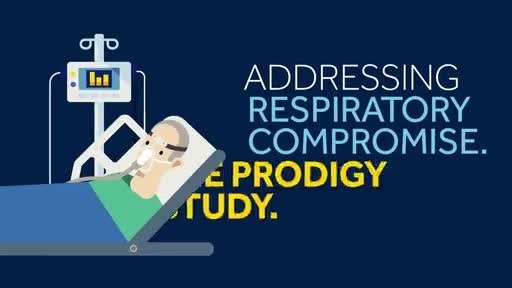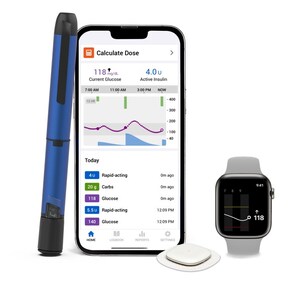- PRODIGY Study Provides First Validated Risk Prediction Tool to Guide Continuous Monitoring for Opioid-Induced Respiratory Depression (OIRD)
- OIRD Occurred in 46% of Patients Studied
- Patients with Respiratory Depression Are 37% More Likely to Experience an Adverse Event and Require Longer Hospital Stays
DUBLIN, Sept. 10, 2020 /PRNewswire/ -- Medtronic plc (NYSE:MDT), the global leader in medical technology, today announced the publication of primary data from PRODIGY (PRediction of Opioid-induced respiratory Depression In patients monitored by capnoGraphY), a Medtronic-sponsored, prospective observational, multi-center study to quantify the incidence and identify patients at high risk of opioid-induced respiratory depression (OIRD), a potentially life-threatening form of respiratory compromise that may impede breathing. Importantly, conclusions from the study data enabled the development of the PRODIGY Risk Score, an easy-to-use risk prediction tool to identify patients at high risk of respiratory depression who would benefit from continuous monitoring with capnography and pulse oximetry.
The study, which analyzed 1,335 patients across 16 sites in the United States, Europe and Asia, found that respiratory depression, as defined by changes in pulse oximetry and capnography monitoring parameters, occurred in 46% of medical and surgical patients evaluated who were receiving IV opioids for pain. This incidence rate is significantly higher than previously reported in clinical literature.1 The complete study results are published online in Anesthesia and Analgesia1, the official journal of the International Anesthesia Research Society (IARS).
"PRODIGY data confirms that respiratory depression in patients receiving parenteral opioids occur frequently and are potentially unknown to hospital healthcare providers," said Ashish K. Khanna, M.D., primary study investigator and an associate professor of Anesthesiology, section head for Research and intensivist at the Wake Forest School of Medicine. "Together with risk assessment using the PRODIGY Risk Score, the use of capnography and oximetry for continuous monitoring of patients identified as high risk for respiratory depression may increase safety when parenteral opioid analgesia cannot be avoided."
Currently, there are no universally accepted guidelines to direct effective and safe assessment and monitoring practices for patients receiving in-hospital opioid analgesia.2 In addition to providing insight into the rate of respiratory depression, a key objective of PRODIGY was to develop and validate an accurate and easy-to-use risk assessment scoring tool. The PRODIGY Risk Score uses risk factors including: age > 60 years, male gender, opioid naïvety, sleep disorders and chronic heart disease for respiratory depression events risk prediction.1
"The PRODIGY Risk Score has acceptable accuracy for risk stratification using several robust methods of internal validation, addressing significant gaps in preventing this common and potentially deadly condition," said Frank Chan, vice president and general manager of the Patient Monitoring business, which is part of the Minimally Invasive Therapies Group at Medtronic. "Patients with respiratory depression were more likely to experience an adverse event that prolonged hospitalization and more likely to require rescue action, including rapid response team activation."
The PRODIGY study is the largest known study using continuous capnography and pulse oximetry data on surgical and medical patients collected by Medtronic Microstream™ and Nellcor™ monitoring technology. The study design used an innovative mechanism of data collection whereby bedside providers were blinded to continuous monitoring systems and all alarms were also silenced. All patients experiencing respiratory depression were reviewed and confirmed by an independent clinical event committee of physicians with expertise in perioperative respiratory medicine.
For additional information about monitoring for respiratory compromise with capnography in the post-operative and general care settings, please visit: medtronic.com/prodigy
About Respiratory Compromise
Respiratory compromise is a potentially life-threatening, progressive condition negatively impacting a person's ability to breathe adequately to maintain oxygenation and carbon dioxide removal. Patients with respiratory depression may experience shallow, slow or no breathing after opioid administration which undetected can lead to cardiopulmonary arrest and death.3 This condition is rapidly becoming the third-most costly hospital inpatient expense in the U.S., and dramatically increases the likelihood of adverse patient outcomes and cost of patient care.4 Not only is respiratory compromise common and dangerous, it has been very difficult to predict.5-7
About Medtronic
Medtronic plc (www.medtronic.com), headquartered in Dublin, Ireland, is among the world's largest medical technology, services and solutions companies – alleviating pain, restoring health and extending life for millions of people around the world. Medtronic employs more than 90,000 people worldwide, serving physicians, hospitals and patients in more than 150 countries. The company is focused on collaborating with stakeholders around the world to take healthcare Further, Together.
Any forward-looking statements are subject to risks and uncertainties such as those described in Medtronic's periodic reports on file with the Securities and Exchange Commission. Actual results may differ materially from anticipated results.
- Khanna AK, Bergese S, Jungquist CR, Morimatsu H, Uezono S, Lee S, et al. Prediction of Opioid-Induced Respiratory Depression on Inpatient Wards Using Continuous Capnography and Oximetry: An International Prospective, Observational Trial. Anesth Analg. 2020; In press.
- Khanna AK, Overdyk FJ, Greening C, Di Stefano P, Buhre WF. Respiratory depression in low acuity hospital settings – seeking answers from the PRODIGY trial. J of Crit Care 2018, https://www.jccjournal.org/article/S0883-9441(18)30217-X/fulltext. Accessed June 18, 2018.
- Morris TA, Gay PC, MacIntyre NR, et al. Respiratory compromise as a new paradigm for the care of vulnerable hospitalized patients. Respir Care. 2017 Apr;62(4):497-512. doi: 10.4187/respcare.05021.
- Wier LM, Henke R, Friedman B. Diagnostic groups with rapidly iCosts, by payer, 2001-2007: statistical brief #91. Healthcare Cost and Utilization Project (HCUP) Statistical Briefs. Rockville MD2010.
- Belcher AW, Khanna AK, Leung S, et al. Long-acting patient-controlled opioids are not associated with more postoperative hypoxemia than short-acting patient-controlled opioids after noncardiac surgery: a cohort analysis. Anesth Analg. 2016;123(6):1471-9.
- Khanna AK, Sessler DI, Sun Z, et al. Using the STOP-BANG questionnaire to predict hypoxaemia in patients recovering from noncardiac surgery: a prospective cohort analysis. Brit J Anaesth. 2016;116(5):632-40.
- Sun Z, Sessler DI, Dalton JE, et al. Postoperative hypoxemia is common and persistent: a prospective blinded observational study. Anesth Analg. 2015;121(3):709-15.
Contacts: |
|
John Jordan |
Ryan Weispfenning |
Public Relations |
Investor Relations |
+1-508-452-4891 |
+1-763-505-4626 |
SOURCE Medtronic plc

Related Links
WANT YOUR COMPANY'S NEWS FEATURED ON PRNEWSWIRE.COM?
Newsrooms &
Influencers
Digital Media
Outlets
Journalists
Opted In







Share this article